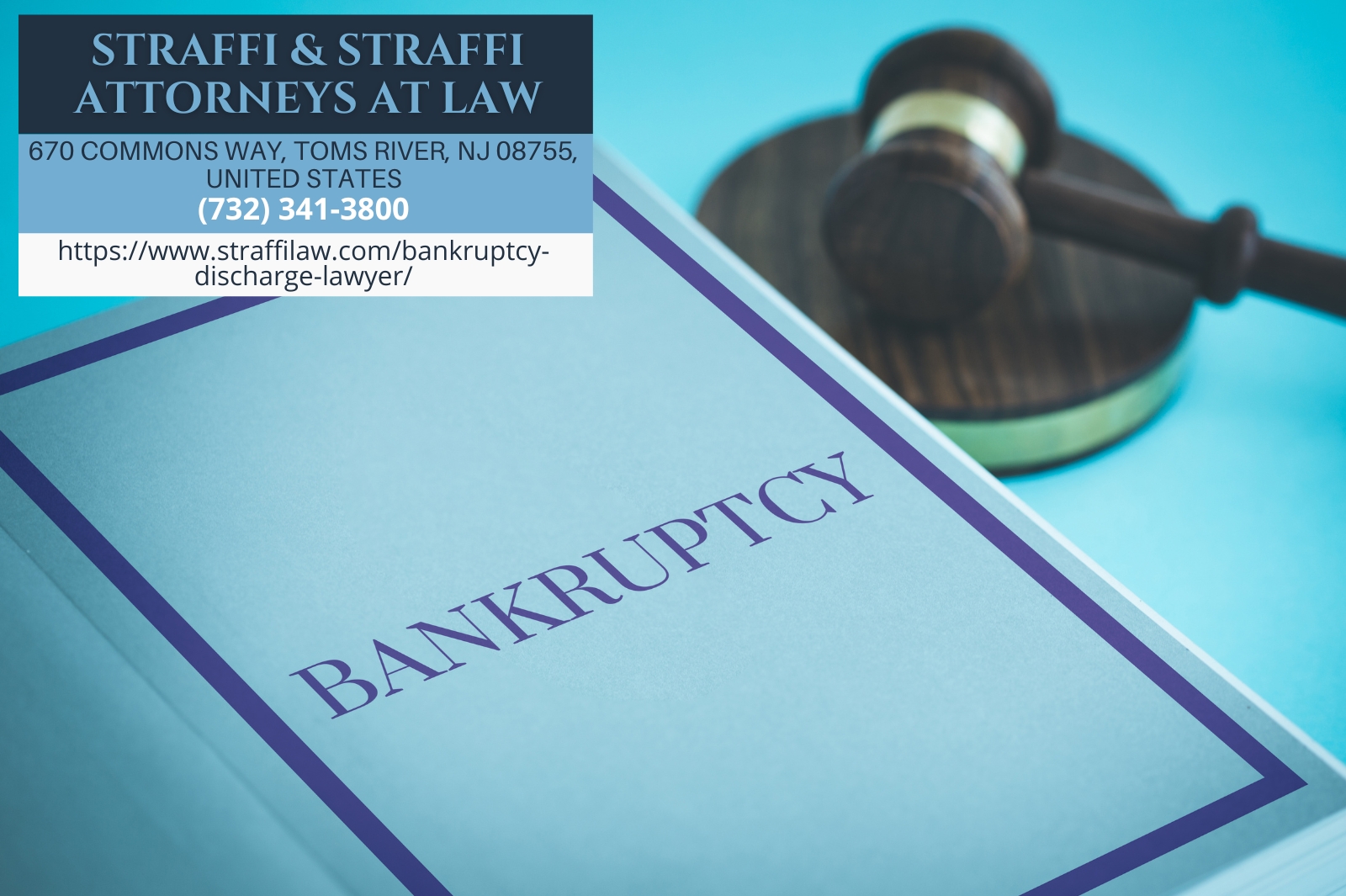New Jersey bankruptcy discharge lawyer Daniel Straffi of Straffi & Straffi Attorneys at Law has published a comprehensive article detailing the intricacies of bankruptcy discharge in New Jersey. This informative piece aims to assist individuals and businesses in understanding the bankruptcy process and how to obtain a discharge, offering a fresh financial start.
The New Jersey bankruptcy discharge lawyer emphasizes the importance of understanding the discharge process. “A bankruptcy discharge is a powerful tool that eliminates certain debts, providing relief and a chance to rebuild financially,” he explains. The article outlines the types of bankruptcy available, including Chapter 7 and Chapter 13, and the implications of each.
In the article, New Jersey bankruptcy discharge lawyer Straffi explains the types of bankruptcy discharge available under New Jersey law. Chapter 7 bankruptcy, also known as “liquidation bankruptcy,” involves selling non-exempt assets to repay creditors. Upon successful completion, most unsecured debts are discharged, offering debtors a clean slate. Eligibility for Chapter 7 requires passing a means test and completing credit counseling.
Chapter 13 bankruptcy, on the other hand, allows debtors to propose a repayment plan over three to five years. This plan enables debtors to retain assets while repaying a portion of their debts. Upon successful completion, remaining unsecured debts included in the plan may be discharged. Straffi highlights the importance of distinguishing between these types to select the appropriate option for individual circumstances.
Straffi details the timeline for obtaining a Chapter 7 bankruptcy discharge. The process begins with filing a petition with the U.S. Bankruptcy Court in New Jersey, triggering an automatic stay on all collection actions. A meeting of creditors follows, allowing the trustee and creditors to inquire about financial affairs. If no objections arise, a discharge is typically granted within three to four months.
The article also covers Chapter 13 bankruptcy discharge, emphasizing its structured approach to debt repayment. Debtors must file a petition outlining their financial situation and propose a repayment plan. This plan prioritizes secured debts while potentially reducing unsecured debt repayments. Successful completion results in a discharge of remaining unsecured debts.
For those considering bankruptcy, Straffi underscores the importance of consulting with a knowledgeable New Jersey bankruptcy attorney. Legal guidance can significantly enhance the likelihood of a successful discharge and protect the debtor’s interests. An attorney can assist with preparing applications, communicating with creditors, and navigating the complexities of the bankruptcy system.
The article offers a detailed overview of the bankruptcy discharge process in New Jersey. It highlights key steps, including filing the discharge request, engaging with the bankruptcy trustee, and attending the meeting of creditors. Straffi emphasizes the importance of compliance with bankruptcy laws to maximize the chances of a successful discharge.
Receiving a bankruptcy discharge is a critical milestone, allowing debtors to move forward with their financial lives. The article explains the effectiveness of a discharge in eliminating legal obligations for discharged debts and protecting against creditor actions. While some debts, such as child support and student loans, are typically non-dischargeable, the relief offered by a discharge can be transformative.
Straffi also addresses potential legal proceedings related to bankruptcy discharge, such as dischargeability complaints and reaffirmation agreements. He stresses the importance of understanding these aspects to effectively manage the bankruptcy process and protect one’s rights.
For individuals seeking debt relief, the article serves as a valuable resource, offering guidance on eligibility requirements, timelines, and dischargeable debts. Readers are encouraged to consult with a bankruptcy attorney to explore their options and achieve a positive resolution.
Those interested in learning more about bankruptcy discharge in New Jersey can access the full article for detailed insights into the legal landscape. Straffi & Straffi Attorneys at Law remain committed to supporting clients through this challenging process, providing dedicated legal representation.
About Straffi & Straffi Attorneys at Law:
Straffi & Straffi Attorneys at Law is a reputable legal firm in New Jersey, dedicated to providing quality legal counsel and representation in bankruptcy cases. Led by Daniel Straffi, the team is committed to helping clients address their financial challenges and achieve a fresh start. With a focus on personalized service, Straffi & Straffi Attorneys at Law is a trusted partner for individuals and businesses seeking debt relief solutions.
Embeds:
Youtube Video: https://www.youtube.com/watch?v=2e28QUpgRyw
GMB: https://www.google.com/maps?cid=18340758732161592314
Email and website
Email: familyclient@straffilaw.com
Website: https://www.straffilaw.com/
Media Contact
Company Name: Straffi & Straffi Attorneys at Law
Contact Person: Daniel Straffi
Email: Send Email
Phone: (732) 341-3800
Address:670 Commons Way
City: Toms River
State: New Jersey 08755
Country: United States
Website: https://www.straffilaw.com/

